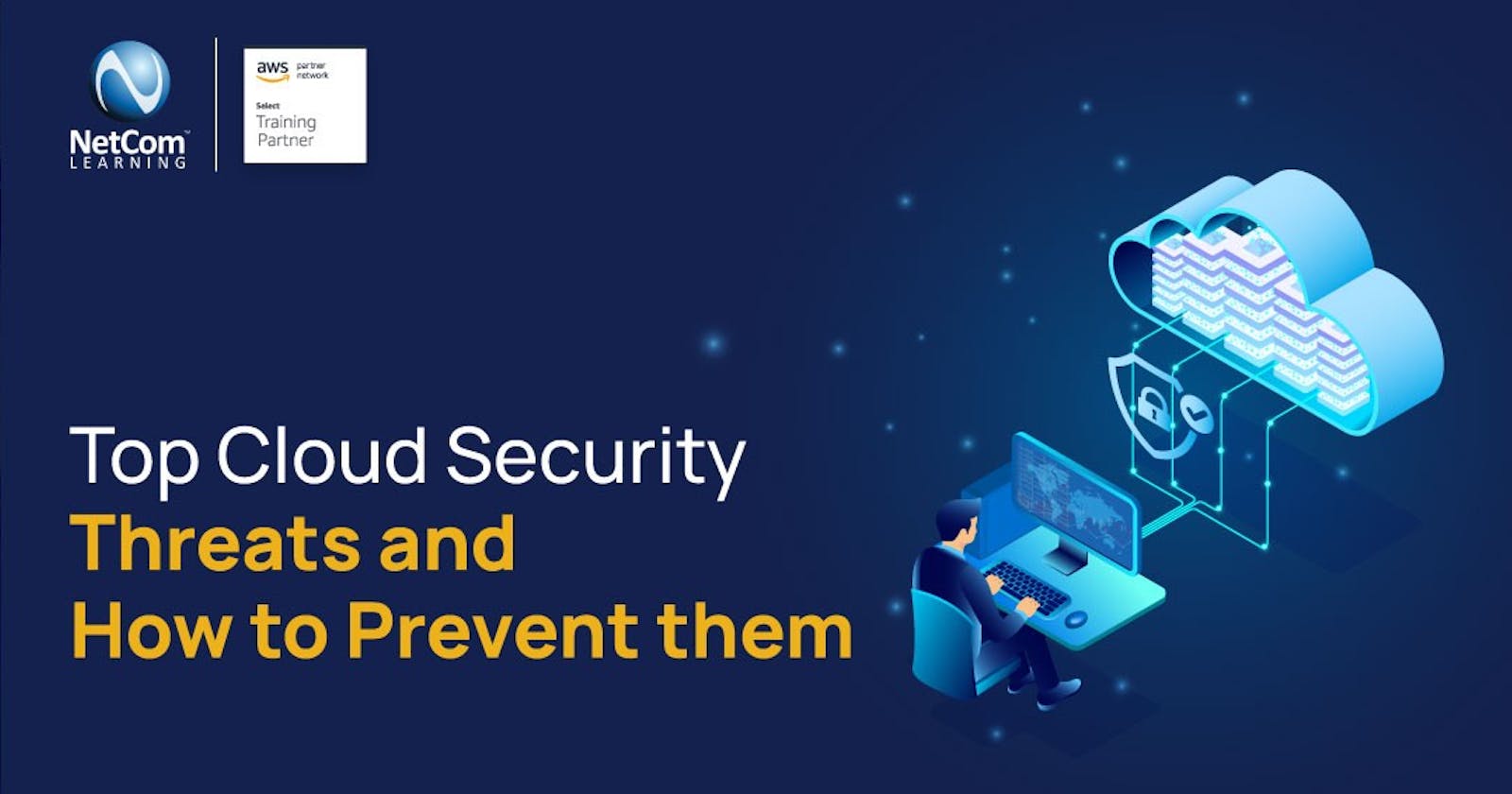Table of contents
No headings in the article.
Cloud-based technologies have changed the game for many enterprises, providing them with greater flexibility, elasticity, and agility at a lower cost. However, cloud infrastructure is vulnerable to security attacks. Hackers will always hunt for back door access into the areas where organizations store their data, whether you use a private or public cloud. A back door might be introduced by a phishing effort, a system weakness, or hostile insiders.
Verizon’s Data Breach Investigations report demonstrates the critical need for solid cloud security measures given the exponential growth of cybercrime during the pandemic.
Top cloud security threats and how to prevent them
- Data Breaches
Hackers have discovered a gold mine in the massive amounts of data maintained by Cloud Service Providers (CSPs) in public and private clouds. Since cloud-based systems are easily accessible over the internet, some security vulnerabilities are inherent. Although hackers' intentions differ, they frequently look for material not intended for public consumption to manipulate. Examples are personal health information (PHI), personally identifiable information (PII), trade secrets, politically important information, financial information, and intellectual property.
Solution: 1) Use authentication methods, such as two-factor authentication and encryption. 2) In the case of a data breach, reset the passwords for local and network administrators right away. 3) Enable and consolidate logging during a cybersecurity event to allow investigative responders fast access.
Account hijacking
Inadequate identity and credential management might expose businesses to assaults and hijacking efforts. Hackers can take control using simple registration systems, phishing, and pretexting. If a botnet successfully steals credentials from one victim, it may use them against another organization's application utilizing the same cloud service. Once entered, they can take control of the account, steal data, and harm the organization's reputation.
Solution: 1) Restrict who has access to vulnerable places. 2) Use robust two-factor authentication measures to prevent users from revealing their credentials. 3) Keep an eye on account activity and ensure it can be traced back to a human owner.
3. Malware
According to the Data Breach Investigations Report, malware is still a force to be reckoned with. Malware attackers employ scripts or programs to eavesdrop, steal, and jeopardize the integrity of sensitive data. Backdoor malware, often known as Command and Control (C2) malware, has become a popular tactic among hackers. They first obtain access through an email or a social media link. Once inside, further malware is downloaded, encoded to avoid detection, and immediately deployed.
Solution: 1) Provide cybersecurity workers with training that focuses on safe surfing and downloading practices. 2) Install and maintain firewalls. 3) Maintain constant oversight of all accounts and account access.
4. Data Loss
Businesses lose data on the cloud due to a data breach in which a threat actor gains access to a system to steal data. A cloud service provider might also delete data by mistake. Data may be lost permanently if data is encrypted and the encryption key is misplaced. Natural calamities such as wildfires, hurricanes, and earthquakes may also be blamed. Whatever the cause, losing data permanently is terrible for an organization.
Solution: 1) Take precautions to guarantee that your data is always backed up somewhere, preferably using a combination of 2) physical and cloud-based storage. 3) Examine your cloud service provider's contract (CSP). 4) Inquire with the CSP about redundancy and other data backup capabilities.
5. Denial-of-Service Attacks
Denial-of-Service (DoS) attacks have long been at the top of cloud security risks. Although they seldom result in data breaches, they might create insurmountable delays or even bring activities to a standstill. They can be carried out by a single actor (DoS) or by a group of actors (Distributed Denial-of-Service) to interrupt service in a virtualized cloud environment by exhausting its CPU, RAM, disc space, or network bandwidth. This action can have long-term consequences for an organization, such as client loss, tarnished corporate reputation, or the suspension of commercial activities.
Solution: 1) Install an antivirus application and a firewall. 2) Examine your network setup for any flaws that might be exploited. 3) Hire a third-party firm to assist you in monitoring and protecting your systems.
Apart from protecting digital assets, find out the various ways in which cloud security skills help organizations with digital transformation. Read our blog on Top 5 Reasons to Develop Cloud Security Skills.
How can cloud security skills protect your organization?
Organizations with cloud security experts can reap the following benefits: ● Scaling securely with superior visibility and control. ● Automating and reducing risk with deeply integrated services. ● Building the highest standards for privacy and data security. ● Creating the most extensive ecosystem of security partners and solutions. ● Inheriting the most comprehensive security and compliance controls.
AWS helps build security skills and supports more security standards and compliance certifications than other offerings. AWS certifications will help you: ● Create and implement AWS's security strategy, addressing major issues for cloud computing organizations. ● Develop access control, threat detection, and DDoS prevention services, enabling organizations to grow and innovate in a secure environment. ● Understand incident response and deal with illegal activities.
If you are new to AWS cloud security and want to learn in detail about the various tasks taken up by AWS security engineers, then check out our blog. We help you understand the various responsibilities and tasks performed by AWS security engineers.
AWS cloud security engineersare specialists that assess risk and implement solutions to safeguard consumers and corporate data. The AWS Security Certification course will assist you in understanding AWS security and guiding peers, managers, and senior executives in implementing and managing partner-team compliance.
NetCom Learning will help you in mastering AWS security with AWS security training. NetCom Learning has certified instructors delivering interactive sessions with hands-on labs, and self-paced e-learning opportunities to enhance your learning journey. Beginners
